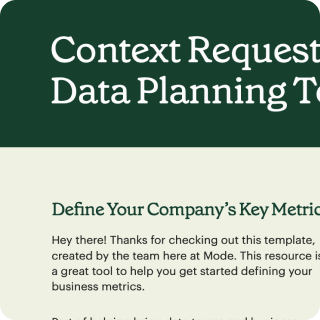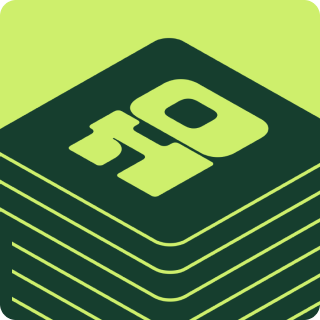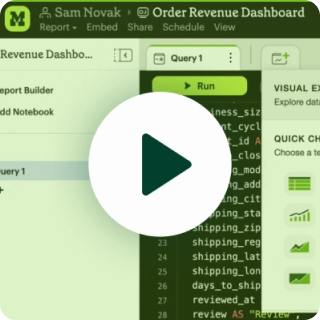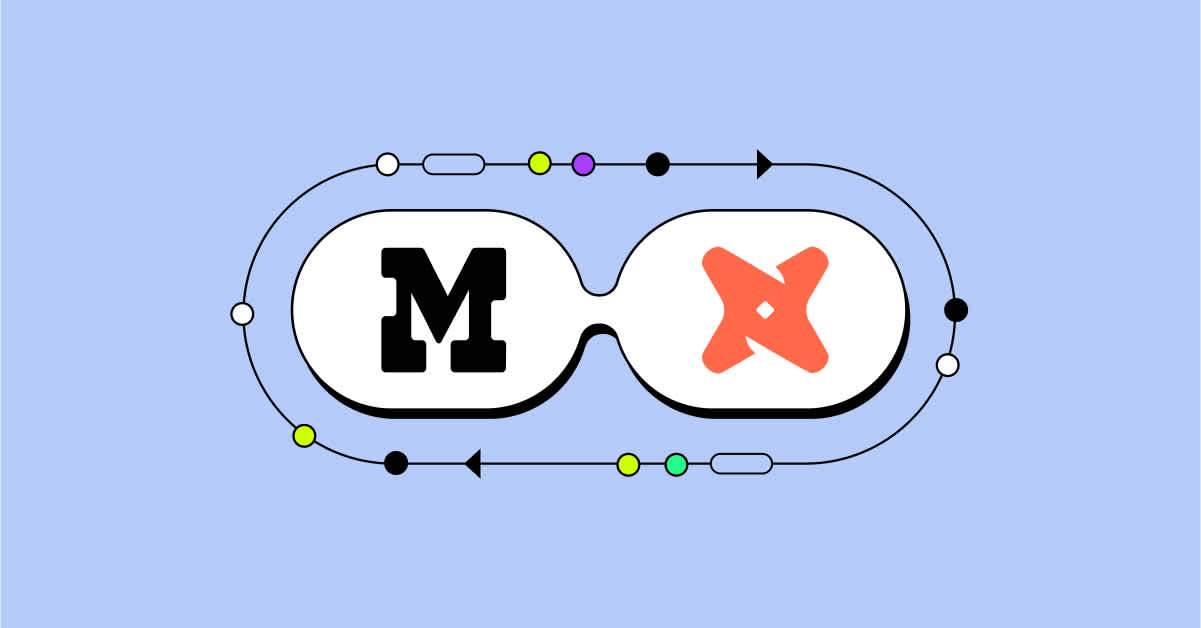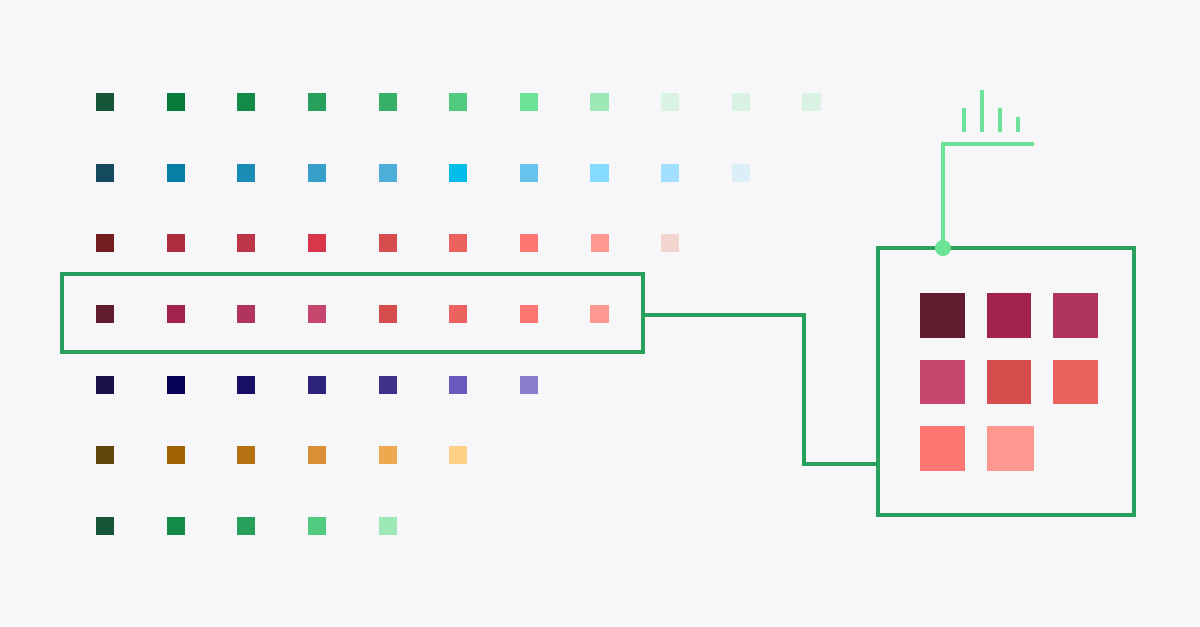Who’s Behind the Numbers? A Conversation with Dr. Angela Baltes—Data Scientist, Informaticist & Senior Research Analyst

Chioma Dunkley, Mode Team Writer
February 15, 2022
NaN minute read

This is our first installment of the series “Who’s Behind the Numbers?.” With this series, we’ll be interviewing data professionals to not only get a view into what they do, but to also learn about their journey and who they are to show that there is not one type of person or path for this field.
We want to know who is behind the numbers: Who are the people creating the dashboards, visualizations, and pipelines to get us the data that we use to inform our decisions? What’s their story? What’s their why? We hope that these conversations will inspire others and increase representation in the field.
We are excited to start this series by highlighting Dr. Angela Baltes—a Data Scientist, Informaticist, and Senior Research Analyst at APEI (American Public Education, Inc.), to hear more about her story of how she made her way to data science as an African-American woman on the autism spectrum.
Can you tell us a little bit about yourself? (Your background, what you do now, your experience in data and research, and anything else you wish to share here, etc.)
I have had a very interdisciplinary experience! I began my academic career in data analytics as a Criminology student in 2008, analyzing crime data with SPSS in my senior capstone course. From Criminology, I studied Public Administration and eventually Information Technology. I ended with a Ph.D. in Biomedical Informatics in 2020.
While pursuing my education, I continued working full-time. I worked primarily in healthcare analytics from 2015 through 2019, where I created a variety of data-driven solutions to assess and monitor patient outcomes in vulnerable populations. Working in different healthcare organizations is where I learned how to leverage my ability to learn new tools/programming languages to derive value from datasets. From healthcare, I had the opportunity to work in higher education. I now work for American Public Education, Inc. (APEI) as a Senior Research Analyst where our team does everything from creating data visualizations and dashboards to creating predictive models.
I noticed you have such a diverse background, what drew you to data?
I fell into data, in a sense. For some time, I was trying to pinpoint what field I would enjoy long-term. I had so many interests, but not all seemed to translate well into a field. I was unaware that working with data was a career field that I could pursue.
When I began my career in Criminology, I was interested in working for the F.B.I. as an investigator. When working for the F.B.I. did not pan out for various reasons, I found a degree program in Public Administration because I was interested in working for the local government. Once that path did not seem like a fit at the time, I looked into Information Technology because I thought maybe a career in technology would be a wonderful fit for me. At this time in my life, I was just trying to find my place. I began to apply for any role in technology - anything I thought I could do long-term.
It wasn’t until I was studying for a Master of Information Technology, that I began to receive job offers for data analyst roles I interviewed for. It was consistent. Perhaps there was a huge demand for these roles and I was in the right place at the right time. My interest was piqued and I was curious to learn more about this field. I happened to enjoy the work, and coincidentally, data analytics coincides with my natural strengths. I simply didn’t know that was a strength of mine at the time. I began working in health because the right opportunity was available.
“...data analytics coincides with my natural strengths. I simply didn’t know that was a strength of mine at the time.”
In your portfolio, you identify yourself as an Informaticist, can you tell us more about what that means to you?
Informatics, as defined by the American Medical Informatics Association (AMIA), “is the science of how to use data, information and knowledge to improve human health and the delivery of health care services.” My doctorate degree is in Biomedical Informatics and I have been employed in roles where I have used data with the purpose of improving human health—whether it is providing education regarding the health of our population or insight to improving healthcare operations/services. This is why I identify not only as a Data Scientist and Data Analyst but also as an Informaticist.
Can you tell us about a project you’ve done in your career that you really enjoyed?
In 2019, I was assessing seasonal illnesses by county in New Mexico. In doing so, I found that: seasonal illnesses and treatment for them via emergency rooms were highest in the most rural parts of the state. I enjoyed this project because I learned about the barriers to care that many face and was able to present them in an objective manner. From this project, more resources were offered to patients, such as telehealth and extended clinic hours during flu season. It was rewarding to see the positive impact of the work that I have done.
What was your transition to data science like? (Things that may have made it difficult and/or easier, what you leveraged, what you did to upskill and showcase your work, etc.)
I did not have a transition to data science. The reason for this is because, in my experience, there has been little distinction in the skills and tasks for my work. It hasn’t been uncommon to hold the title of analyst while regularly performing data scientist tasks. I do believe this is why this field can be challenging, and it was in my roles that I discovered more was expected of me.
This field has continuously evolved, with sometimes unspoken expectations. What I did was network with others working in this field to assess what will inevitably be required of me. I also studied job postings for trends, and I did my best to shape my skill set for the demands of the market.
I immediately understood that I needed to have skill in SQL, Python, and R (even if I was not programming in that particular role). After hours, once I completed my schoolwork, I began to build a personal portfolio and practiced programming in the three languages. I started with Python. Every time I learned a new skill, I tried to incorporate that into my portfolio. I have found that as this field evolves, so do I. I am always looking to learn, grow and become better than I was yesterday.
"I identify not only as a Data Scientist and Data Analyst but also an Informaticist."
Is there a visualization that you’ve made that you’re most proud of? Can you tell us about it?
At this time, I am most proud of my Tableau resume. This was the first time I created a visualization that was about myself and it told a story about how I am. It is a work in progress, and I plan to improve it over time!
What advice would you give to people of color who are interested in working in the data field?
Leverage your strengths and what you offer. It was only recently, when I looked back on my very interdisciplinary education, that I discovered each step of my journey enhanced the data professional I am today.
In Criminology, I was applying methodologies to study information, collaborating in groups, and taking an unbiased approach to understanding an issue; in Public Administration, I was reading and writing peer-reviewed articles, conducting statistical analysis, and public speaking; in Information Technology I was programming in various languages, and learning software design. By the time I got to Biomedical Informatics, I had spent years as a data professional and this degree further refined my knowledge. This is where I learned research for data analysis, advanced statistics for data science, and where I built an end-to-end data science project and wrote my dissertation.
Truth is, I have always had an interest and strength in information gathering. I recall from a very early age examining information. I enjoyed studying encyclopedias. My original dream (before I understood my own abilities) was to work as an investigator for the F.B.I. I am neurodivergent, more specifically on the autism spectrum, and recently took a formal intelligence examination as one of the means to assess the condition, and discovered the ability to examine and understand data/information to be an area I consistently performed well in. It was noted on the examination that I worked in an information field which aligned directly with an obvious strength. I would hope that others who are just starting their careers can be candid with themselves about their interests, strengths, and abilities. You may need to do some upskilling after hours in order to obtain the role you want, but it is worth it and you are investing in yourself.
Thank you Dr. Angela Baltes for taking the time to share your story with us. We hope that others find it inspirational.
Get our weekly data newsletter
Work-related distractions for data enthusiasts.
